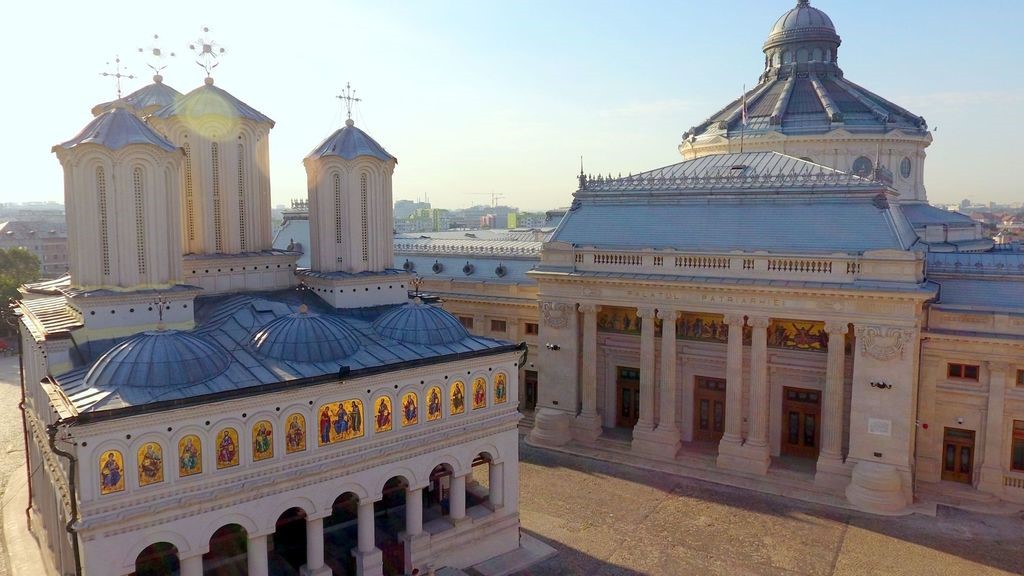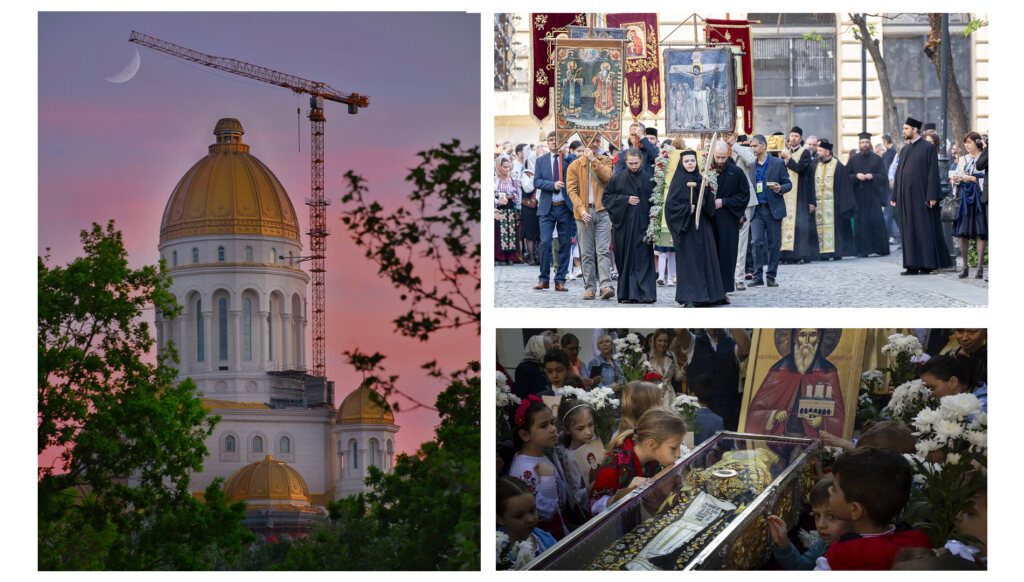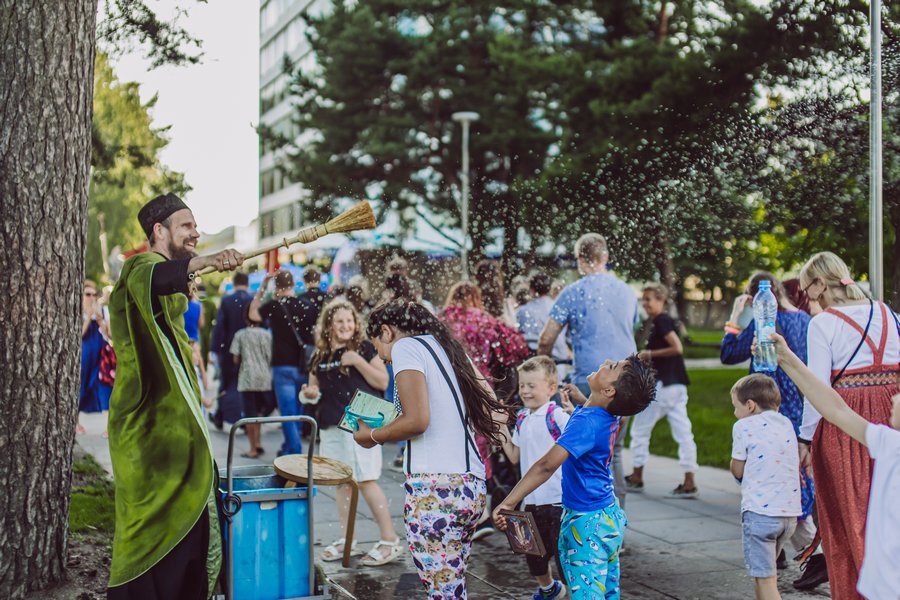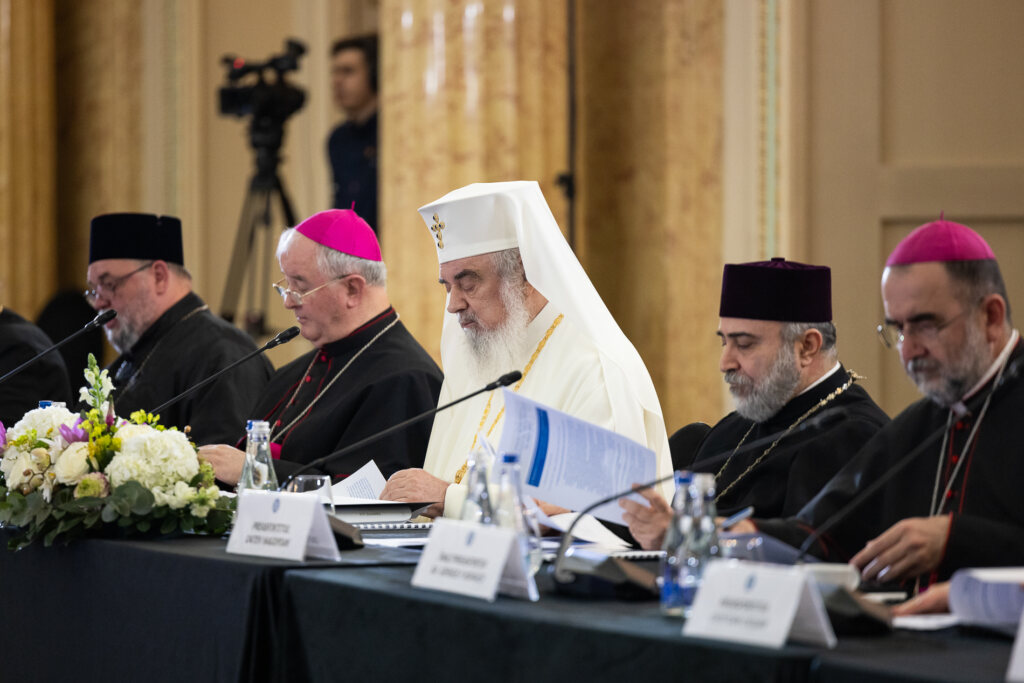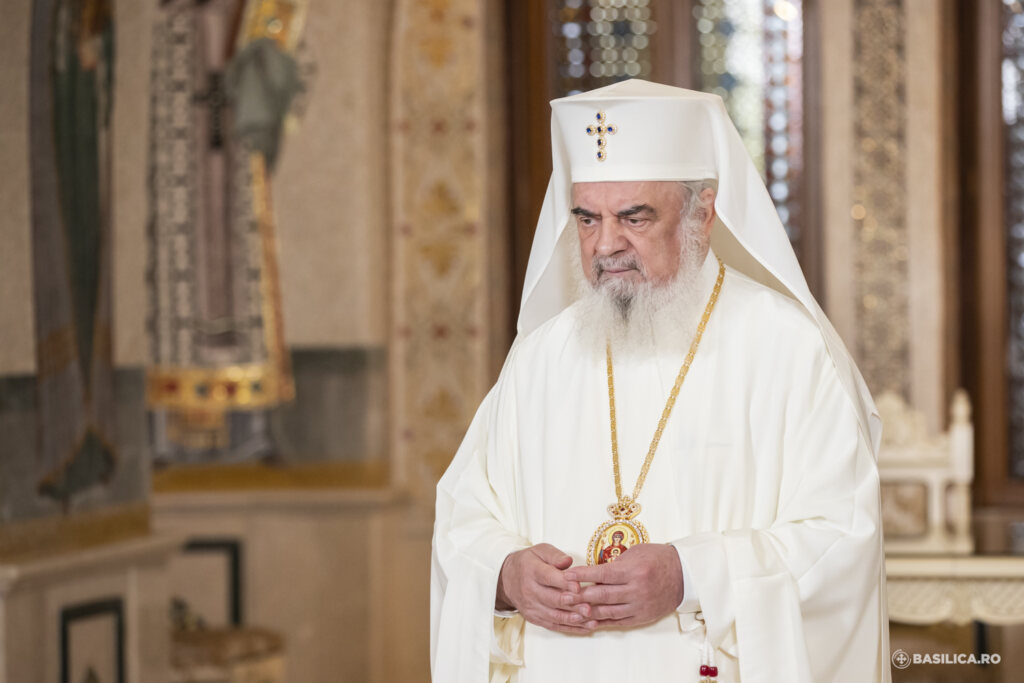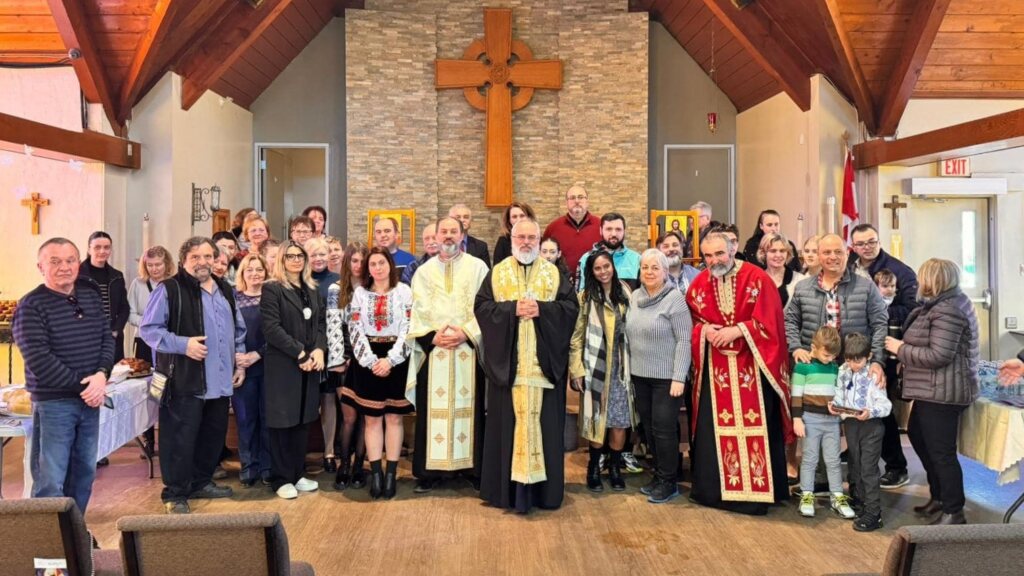Based on the Military Ordinance no. 1 of March 17, 2020, and the Military Ordinance 2 of March 21, 2020, which established successive measures to limit the freedom of movement and assembly of citizens, which also affects the public religious life of the believers, following the consultation with the Ministry of Internal Affairs on March 22, 2020, we convey to you the following:
-
- In all parishes, the Divine Liturgy and other liturgical services will be celebrated in the place of worship by the ministers of the respective church (priests, deacons, chanters, sexton), without the participation of the public (lay believers). Services can be broadcast online and by local or national media.
- In the monasteries, the services will be officiated in the church by the church ministers, in the presence of the members of the monastic community, without the participation of the public. Services can be broadcast online and by local or national media.
- All Romanian Orthodox believers in Romania and the diaspora can follow the Divine Liturgy and other liturgical services officiated at the Patriarchal Cathedral on Trinitas TV and Radio Trinitas stations of the Romanian Patriarchate or through other broadcasting stations.
- Although the Divine Liturgy and other liturgical services are officiated in the church, without the participation of the public (lay believers), the churches may still be open for special situations (such as those mentioned at point 8).
- Since lay believers cannot physically participate in church services, they are urged to organize in their own homes a prayer corner with icons, Holy Scripture (Bible), prayer lamp or candle, prayer books and spiritual readings, observing the spiritual rule established together with their spiritual father.
- All believers in a parish will be remembered at the Divine Liturgy, especially now that they cannot physically participate in the Divine Liturgy, but only spiritually, from a distance.
- During this period, the faithful will keep in touch with the parish priests and especially with their spiritual father. At the believers’ request, the priest can go to their home for spiritual conversations, Confession and Communion, in compliance with the protective measures, including wearing a mask and sanitary gloves.
- The Mysteries of Baptism and Marriage can be officiated inside the place of worship with the participation of a maximum of 8 people.
- Funeral service may be officiated at the church, in the mortuary chapel or at the cemetery; up to 8 people can attend the ceremony.
- Confession and Communion for the sick believers in the hospital will be performed in compliance with the hospital rules.
- Administering the Mysteries of Confession and Communion to the sick believers at home will be done by the priest, following the following procedure: the priest will draw up his statement on his own responsibility for movement according to the model approved by the state authorities, ticking off as a reason for moving to assist the elderly, vulnerable or for accompanying children. When entering the home of the believers, the priest will use disposable footwear and sanitary mask, wash his hands with soap and water and use disinfectant. He will only use a service book, epitrachelion, and the liturgical kit for administering Communion to the sick. These objects will be both previously and subsequently disinfected.
- The celebration of the communal Holy Unction is suspended. In exchange, the priests will urge the faithful to read every Wednesday and Friday the Akathist Hymn to the Patron Saints for Healing, such as Saint Spyridon, Saint Nektarios of Aegina, the Holy Great Martyr and Unmercenary Panteleimon, Saint Paraskeva the New, Saint Demetrius the New, Saint Callinicus of Cernica etc.
- Repeated disinfection of access roads, church furniture and surfaces will be performed, frequent ventilation of places of worship, ensuring a hand hygiene area for all who come to the church.
- The Church’s social and medical centres will continue their activity according to the regulations in force regarding their specificity (nursing home, social canteen, medical office, shops of religious objects and church books etc.).
- The social activity of the parishes and monasteries will be adapted to the new social and medical needs, namely to support people who cannot move in order to supply food or medicines, but in compliance with all the hygienic and protective measures established by the authorities.
- If an employee of the Church manifests symptoms or has come into contact with a person diagnosed with the new coronavirus, he or she will communicate in writing or telephone to his or her hierarchical superior. In the event of such contact, the employee will immediately notify the health authorities and follow the established procedures (self-isolation, quarantine, etc.).
- Higher church authorities will issue permits to parish priests and officials in the church administration for travel to work. Parish priests and monastery abbots will issue certificates for their reports (clergy, deacons, chanters, sextons).
- We urge all believers not to leave the house except for situations of utmost necessity.
- In the state of emergency, both the clergy and the lay believers must respect the provisions of the state authorities. Otherwise, they will bear the sanctions provided by law.
- Exceptional measures taken by the authorities aim to protect our health and the health of those around us. Life and health are gifts from God, but we have to defend and cultivate them with permanent responsibility.
Chancellery of the Holy Synod
Photography courtesy of Basilica.ro Archive
Follow us on Twitter: @BasilicaNews
